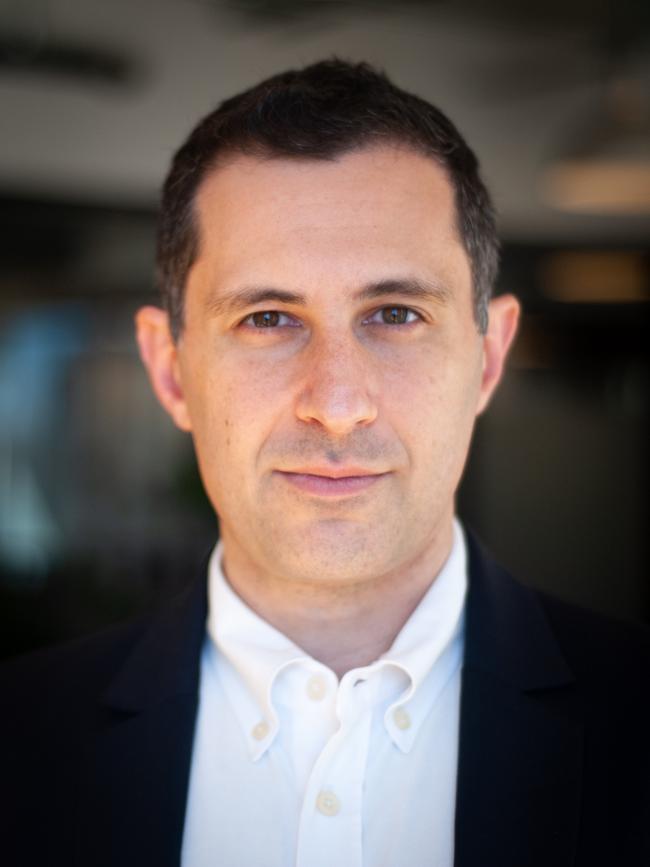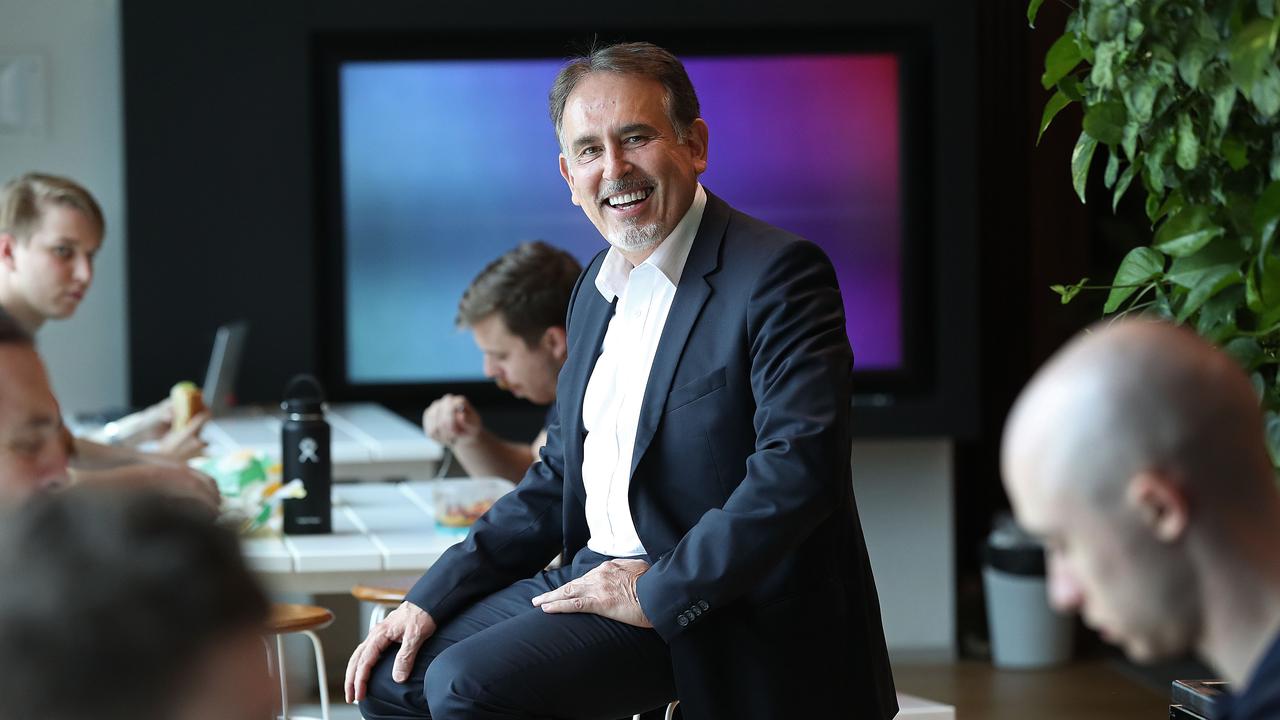Why size will no longer matter as law firms adopt AI
A generative AI assistant for lawyers has hit the market, turbo charging how law firms charge clients and possibly spelling the end to the ‘bigger is better’ mantra.

As more law firms embrace artificial intelligence it creates a paradox but one that Australians are eager to solve, according to Jake Heller, head of Thomson Reuters’ AI platform for lawyers.
The media and information titan is launching its generative AI assistant for the legal profession, CoCounsel Core, in Australia and Canada this week, with the technology able to perform a range of key legal tasks, including drafting correspondence, preparing for depositions and reviewing contracts.
It can absorb thousands of documents and answer a lawyer’s questions via simple verbal prompts within seconds. Opposing counsel no longer will be able to bury documents during a case’s discovery phase.
But as AI turbocharges efficiency across the legal firms, it raises a key question about what how lawyers charge for the services. It’s a thorny question that Mr Heller is quick to highlight.
“If you’re billing by the hour, you sometimes ask the question ‘why be more efficient? That hurts me’,” he said.
“A lot of firms globally are still tied to that model.”

But he said Australia was breaking away and had been experimenting with new technology and ways of working, and charging. MinterEllison, the nation’s biggest law firm, began using AI to write the first draft of some of its legal advice last year, believing its model was the first in the country able to aid specifically in the issuance of legal advice. Others have since followed.
“Australian firms, for a variety of reasons, have started to experiment with different pricing models,” Mr Heller said.
“We’re giving them flexibility to say ‘yes, actually, we are more than happy to service our clients much faster’, because they’re not being paid on effort being paid an outcome or value.”
This concept is set to spark one of the biggest revolutions in the legal profession, which size and heft have dominated. Mr Heller said AI raised another question, which is why law firms exist.
“Why doesn’t every company have layers inside the company, general counsel that serves all their legal needs? Why do they feel the need, for example, to go to a law firm? And the answer is kind of twofold. The first is, you know, sometimes you get sued and they need like two dozen lawyers to support you.
“And then after the lawsuit ends, you’re like, what fire all those two dozen lawyers? No, you’d rather just go to a law firm and use these contractors basically right?
“The second reason is the value of the law firm’s expertise. As a company, you may only get sued for securities fraud once every 10 years. But there are lawyers who deal with that literally every day, all day.”
While AI might reduce the need for a firm to employ legions of lawyers, the technology doesn’t replace expertise, Mr Heller said, and this is good news for junior staff.
“I think clients will value less and less the size of law firms and value more and more the expertise of the law firms, which may mean that over time the role of associates may return to what it once was.
“It is more of an apprenticeship model where the goal of the associate at the law firm was to become the future experienced wise leader of the firm.
“You are lifting them up by including them in substantive work to become the future of the firm. And I think it’s actually a better situation for young attorneys than when they’re currently out right now.
“I think that, if done properly, AI may return us to that common world that we were in before.”
Thomson Reuters chief executive Steve Hasker told The Australian in December that universities will have to prepare law students to perform tasks up to three years more advanced than current graduates, given how much firms have delegated to AI.
Mr Heller joined Thomson Reuters last year after the company acquired Casetext, the start-up he helmed, for $US650m. In less than a year, CoCounsel has been launched across 45 big law firms in the US which employ 50,000 lawyers collectively.
But while the product taps into Thomson Reuters’ massive legal database, some lawyers have opted to use web-trained ChatGPT for free instead, with disastrous consequences.
Last June in New York, a Manhattan federal judge issued sanctions against two lawyers who cited fake ChatGPT-generated legal research in a personal injury case, blasting the attorneys for wasting the court’s time. It also wasted their clients’ time, with the lawsuit dismissed on the grounds it was untimely.
Mr Heller said accessing Thomson Reuters’ legal database mitigates this risk but the technology should not be used to serve up finished work.
“It’s very important that you treat it like a junior associate, that you’ve delegated work to. It’s very diligent, very fast, it cites sources. And then it’s up to you as the human to kind of exercise judgement and use that kind of sense that we uniquely have like intuition. ‘It doesn’t seem right to me, let me double check that’.
“I think there’s still an important role for that kind of work.”






To join the conversation, please log in. Don't have an account? Register
Join the conversation, you are commenting as Logout